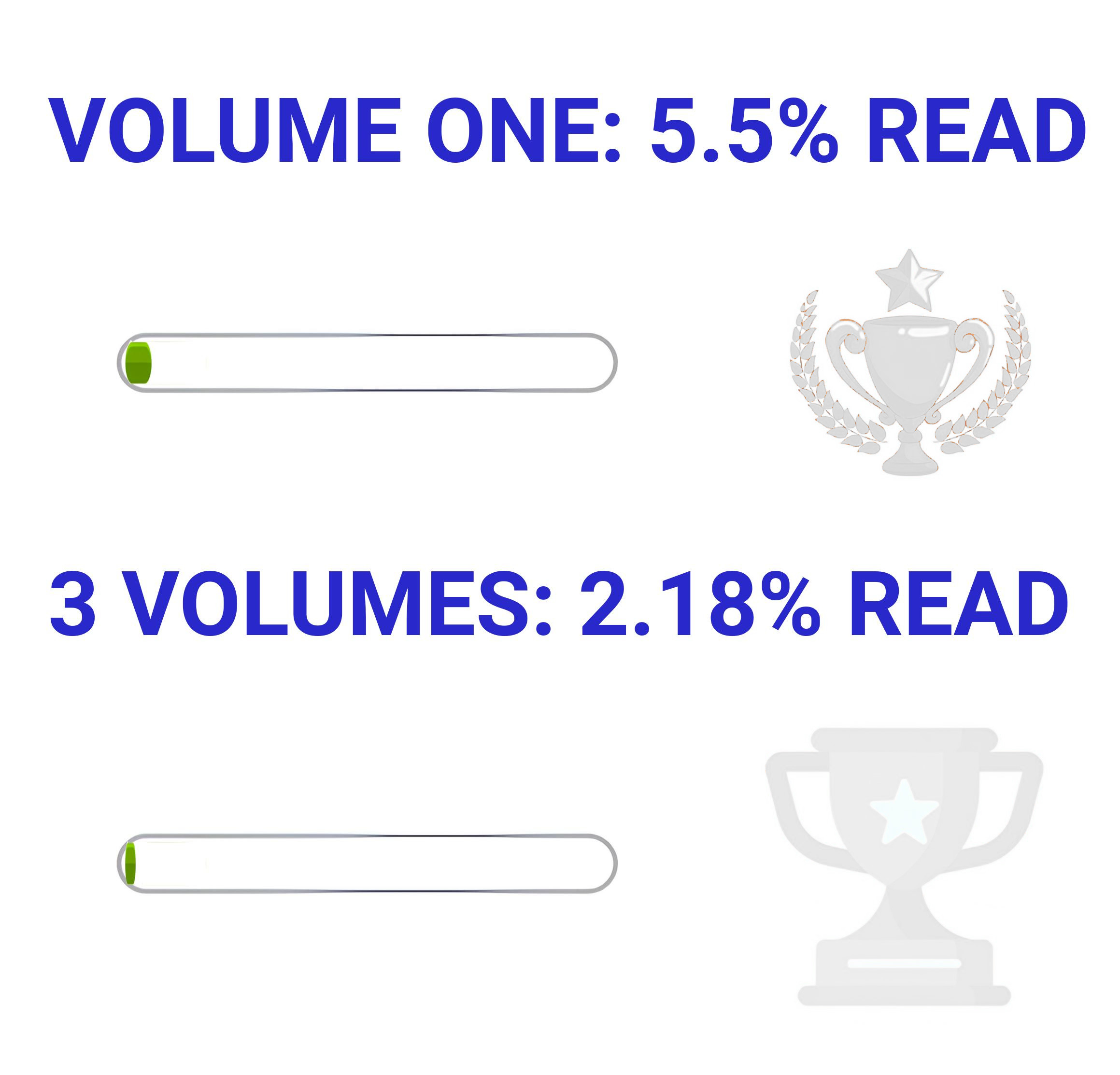Welcome to baby Marxist rehabilitation camp.
We are reading Volumes 1, 2, and 3 in one year. (Volume IV, often published under the title Theories of Surplus Value, will not be included in this particular reading club, but comrades are encouraged to do other solo and collaborative reading.) This bookclub will repeat yearly until communism is achieved.
The three volumes in a year works out to about 6½ pages a day for a year, 46⅔ pages a week.
I'll post the readings at the start of each week and @mention anybody interested. Let me know if you want to be added or removed.
We currently have 58 members!!! I expect a certain drop-off rate, but I'll be thrilled if a dozen or couple dozen read it.
If you've made it this far, you've already read ¹⁄₁₈ of Volume I. The first three weeks are the hardest, after that it'll be quite easy, and only requires 20 minutes a day (endurance is key).
Just joining us? It'll take you about 2-3 hours to catch up to where the group is. You can do that on one long bus ride.
Archives: Week 1
Week 2, Jan 8-14, we are reading Volume 1, Chapter 2 'The Process of Exchange', PLUS Volume 1, Chapter 3, Section 1 'The Measure of Values' PLUS Volume 1, Chapter 3, Section 2 'The Means of Circulation'
In other words, aim to get up to the heading '3. Money' by Jan 14
Discuss the week's reading in the comments.
Use any translation/edition you like. Marxists.org has the Moore and Aveling translation in various file formats including epub and PDF: https://www.marxists.org/archive/marx/works/1867-c1/
Ben Fowkes translation, PDF: http://libgen.is/book/index.php?md5=9C4A100BD61BB2DB9BE26773E4DBC5D
AernaLingus says: I noticed that the linked copy of the Fowkes translation doesn't have bookmarks, so I took the liberty of adding them myself. You can either download my version with the bookmarks added, or if you're a bit paranoid (can't blame ya) and don't mind some light command line work you can use the same simple script that I did with my formatted plaintext bookmarks to take the PDF from libgen and add the bookmarks yourself.
Resources
(These are not expected reading, these are here to help you if you so choose)
-
Harvey's guide to reading it: https://www.davidharvey.org/media/Intro_A_Companion_to_Marxs_Capital.pdf
-
A University of Warwick guide to reading it: https://warwick.ac.uk/fac/arts/english/currentstudents/postgraduate/masters/modules/worldlitworldsystems/hotr.marxs_capital.untilp72.pdf
-
Reading Capital with Comrades: A Liberation School podcast series - https://www.liberationschool.org/reading-capital-with-comrades-podcast/

Any thoughts on this? When he says "Such an idea could only arise in a bourgeois society", is the idea he is talking about buying and selling land? Is he saying that land only changes hands for money when money has spread quite far? (And before that land ownership is traditional, owner by tribes, kings, churches)
Could it be tied to alienation? That land could be alienated and turned into a commodity is not self evident, and because land is literally fundamental to sedentary societies by the time anyone would have the idea it has probably been enmeshed in the social existence of the entire community and thus not easy to take private control of. A desperate laborer can alienate their own labor unilaterally, but a desperate farmer can't alienate land that is collectively worked by a village.
You'd need to suddenly appropriate land, like Henry VIII did to the catholic church, for there to be an alienated chunk of it that has no social resistance and can be disposed of in a simple transaction between owners of commodities.
Small point: land is fundamental to all societies including nomadic ones. 'Nomadic' people generally stay in the same broad area, but move about throughout the year e.g. to different pastures. The whole of the land is similarly viewed as inalienable, even if a certain person may have use-rights over a certain portion for a certain period.
Your point about the desperate labourer vs. desperate farmer is an excellent one, but also applies to landownership after the collective ownership is legally dissolved by the state. In for example the Scottish highlands, the clanchiefs were legally given this sorta ownership over their clans' land in the 1500s/1600s, but this only had effects on the ground gradually as chiefs were co-opted and turned into landlords. Because this new definition of land-ownership had state backing and the old form did not, it was very common for state violence to be used to dispose of such social resistance.
This can be seen especially evidently in its more rapid form in native reservations in the US and Canada, where around 1900 landownership started being forcibly turned to "each individual owns their own plot and can sell it" by the government, allowing for piecemeal dissolution of reserves and sale of the land to whites.
The dissolution of Church land (and protestant reformation) are very importantly economically for capitalism as you say though, both for the addition of lands to bourgeois/state coffers and for the destruction of the church as a social-welfare institution (lazy peasants would rather have church dinners than go to the workhouse if they lose their land